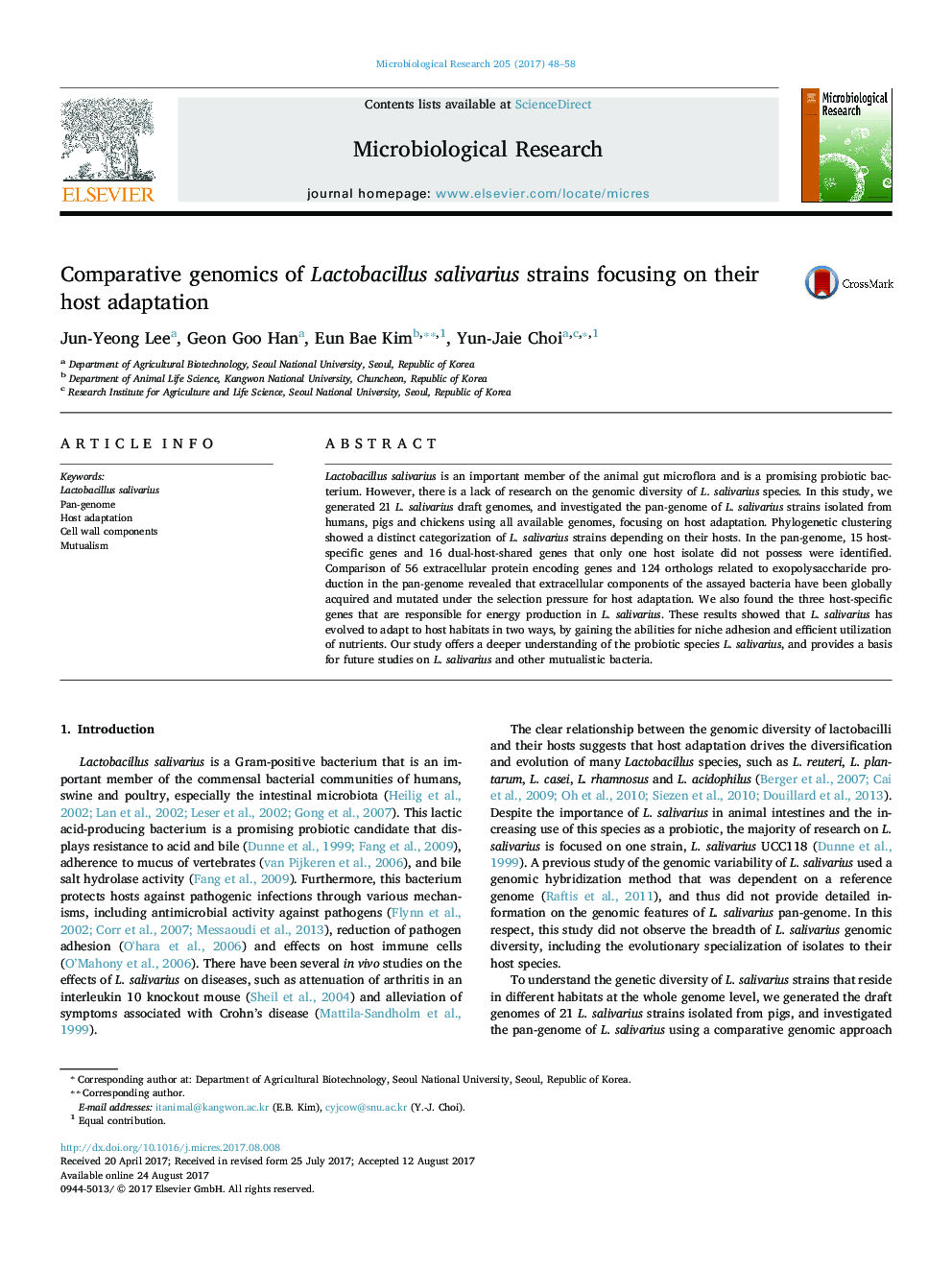| Article ID | Journal | Published Year | Pages | File Type |
|---|---|---|---|---|
| 5522511 | Microbiological Research | 2017 | 11 Pages |
Lactobacillus salivarius is an important member of the animal gut microflora and is a promising probiotic bacterium. However, there is a lack of research on the genomic diversity of L. salivarius species. In this study, we generated 21 L. salivarius draft genomes, and investigated the pan-genome of L. salivarius strains isolated from humans, pigs and chickens using all available genomes, focusing on host adaptation. Phylogenetic clustering showed a distinct categorization of L. salivarius strains depending on their hosts. In the pan-genome, 15 host-specific genes and 16 dual-host-shared genes that only one host isolate did not possess were identified. Comparison of 56 extracellular protein encoding genes and 124 orthologs related to exopolysaccharide production in the pan-genome revealed that extracellular components of the assayed bacteria have been globally acquired and mutated under the selection pressure for host adaptation. We also found the three host-specific genes that are responsible for energy production in L. salivarius. These results showed that L. salivarius has evolved to adapt to host habitats in two ways, by gaining the abilities for niche adhesion and efficient utilization of nutrients. Our study offers a deeper understanding of the probiotic species L. salivarius, and provides a basis for future studies on L. salivarius and other mutualistic bacteria.
